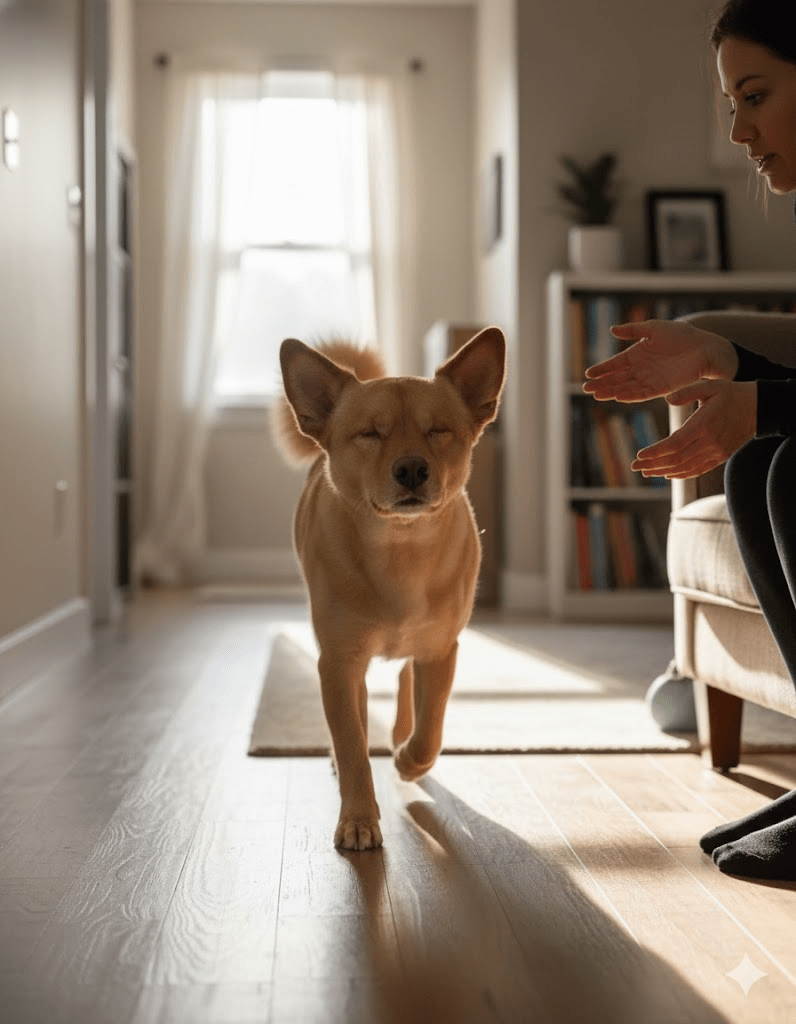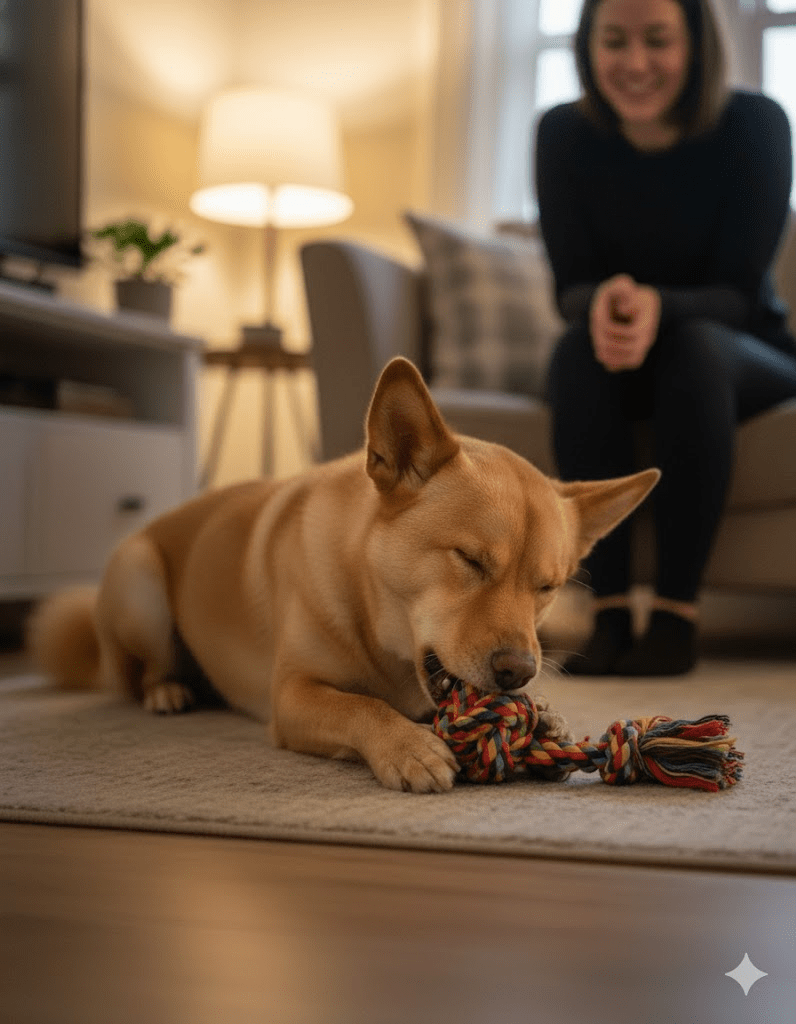The adoption fair was a cacophony of barks, wagging tails, and hopeful eyes, each animal vying for attention. Sarah, a seasoned dog rescuer, usually had a clear idea of what she was looking for – often the shyest, the oldest, or the ones overlooked. But on this particular Saturday, a quiet presence at the far end of a crowded kennel caught her eye. It wasn’t a boisterous bark or an eager leap that drew her in; it was the serene stillness of a golden-furred dog, sitting patiently, his head tilted slightly as if listening to a distant melody.

As she approached, she noticed something unusual: his eyes, though open, lacked the usual sparkle. A volunteer gently explained, “That’s Buddy. He’s blind, born that way.” Sarah’s heart, already open to the vulnerable, swelled with a peculiar mix of sadness and determination. She knew, in that instant, that Buddy was the one, embarking on a journey that would challenge her perceptions and redefine her understanding of love. The path ahead was uncertain, filled with potential obstacles, but the quiet strength emanating from this unique creature was an irresistible pull, promising a connection unlike any she had experienced before. It was a choice that would soon unfold into a series of unexpected twists, revealing a depth of spirit and resilience she never knew existed.

Bringing Buddy home was, initially, a delicate dance of discovery. Sarah meticulously puppy-proofed her apartment, padding sharp corners and creating clear pathways. She spoke to him constantly, her voice a comforting beacon in his dark world, guiding him with gentle words. “Right here, Buddy,” she’d say, as he navigated the living room, “just a step down.” She expected fear, hesitation, maybe even some anxiety. Instead, Buddy displayed an astonishing resilience. He bumped into furniture, yes, but he learned quickly, mapping out his new environment with his nose and ears, a canine sonar system. Within days, he was trotting confidently, his tail wagging a steady rhythm, proving that a lack of sight did not equate to a lack of spirit. Sarah found herself constantly amazed by his adaptability, the way he absorbed every sound and scent, painting a vivid picture of the world around him, unseen but deeply felt.

One evening, Sarah had left a new, enticing chew toy on the floor while she stepped out for a moment. She returned to find Buddy, not in distress or confused, but happily gnawing on the toy, perfectly content. It was a simple moment, but it struck her deeply. She had worried so much about his limitations, about him feeling “different.” Yet, here he was, fully embracing his dog-ness, finding joy in the simple pleasures. It was then that she realized her own subconscious biases were far more limiting than Buddy’s blindness. She had been projecting her own fears onto him, when all he truly needed was her love and belief. This epiphany was a turning point, shifting her focus from “managing his disability” to celebrating his unique abilities.

One day, a storm rolled in, fierce and sudden. The wind howled, and the apartment was plunged into darkness as the power went out. Sarah, usually composed, felt a ripple of anxiety. How would Buddy, unable to see, cope with the sudden disorientation and the terrifying sounds? She expected him to cower, perhaps even whimper. Instead, as she fumbled for a flashlight, she felt a gentle nudge against her hand. Buddy was sitting beside her, calm and steady, his head resting on her leg. He wasn’t scared; he was comforting her. His presence was a silent anchor, reminding her that even in darkness, there was unwavering love and courage. It was an unexpected role reversal that deeply moved Sarah.






